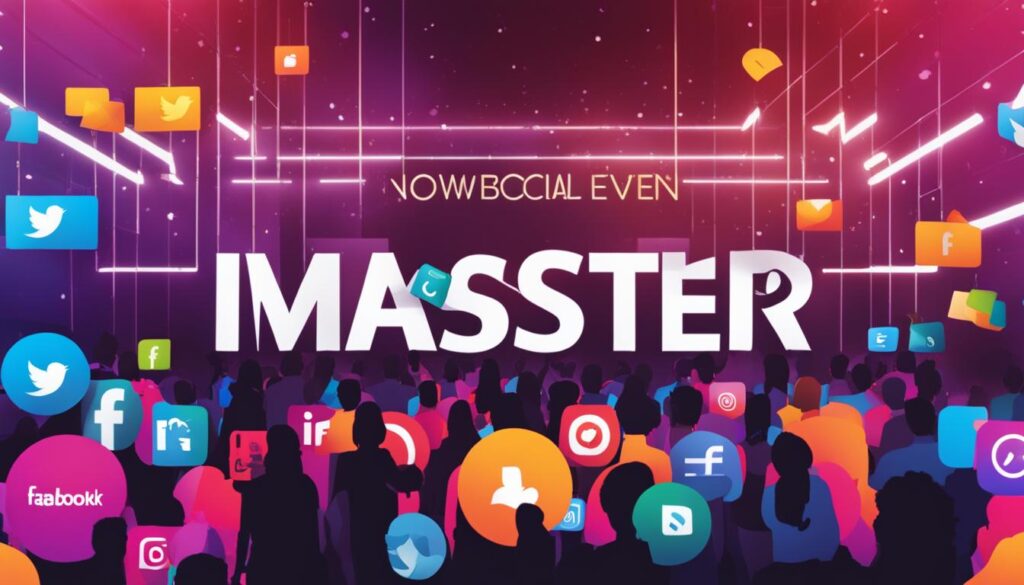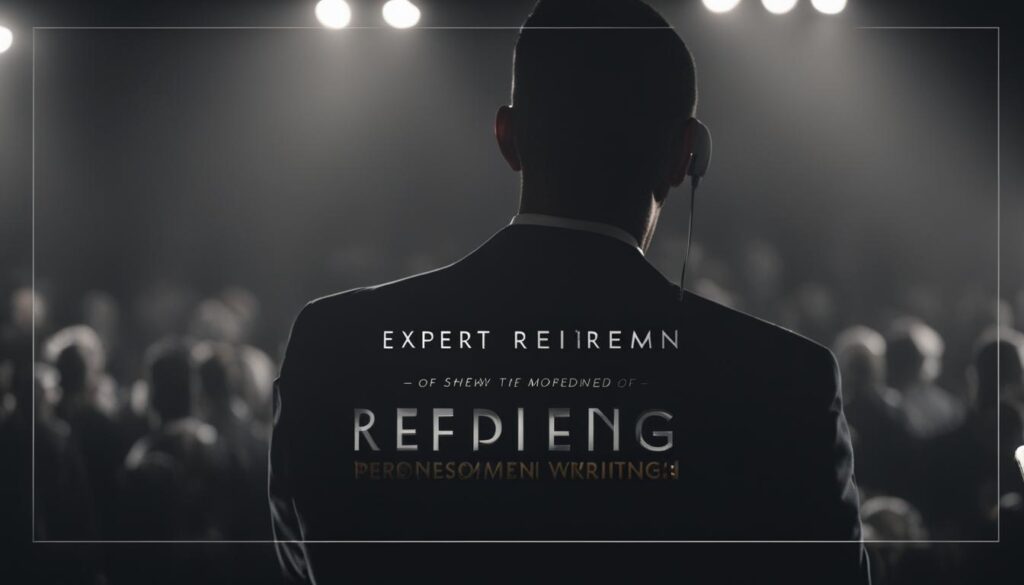We may earn money or products from the companies mentioned in this post.
Event coordination can often be a daunting task, but with the integration of social media, it can become much more manageable. Social media event coordination allows for seamless communication, targeting of specific audiences and the creation of a buzz around your event. Utilizing social media is an excellent way to ensure the success of your event, driving attendance and participation while simultaneously creating brand awareness. Successful events begin with a solid social media strategy, backed by a well-planned event coordination service.
Key Takeaways
- Effective social media event coordination can lead to successful events.
- Utilizing social media can increase attendance, participation, and brand awareness.
- Solid social media strategy is integral to the success of events.
- Targeted communication through social media can improve attendee experience.
- Analyzing metrics through social media can provide valuable insights for event marketing.
Understanding the Basics of Event Coordination
Event coordination involves meticulous planning and execution of various elements to ensure a successful event. It encompasses everything from determining the event’s objective, venue selection, budgeting, vendor management, and logistics to marketing the event and managing the attendees.
Effective event planning starts with defining the event’s purpose and goals, which sets the tone for the event and guides decision-making. Identifying the target audience and their interests is crucial for tailoring the event’s theme, content, and marketing strategies.
Once the event’s purpose is established, the next step is selecting the venue and date. Factors to consider include the event’s type, expected number of attendees, convenience, and budget. It’s essential to select a venue that aligns with the event’s theme, offers the required amenities and equipment, and is easily accessible.
Event coordination also involves budgeting and creating a financial plan that includes all anticipated expenses and revenue sources. With a budget in place, event planners can prioritize their spending and ensure they stay within financial limits.
Vendor management is another critical element of event coordination. This involves identifying and contracting with vendors such as caterers, decorators, audio-visual technicians, and security professionals. It’s essential to negotiate contracts and manage vendor relationships to ensure quality services and timely delivery.
Logistics planning involves managing various details such as transportation, accommodation, and ticketing, ensuring the smooth flow of attendees and staff during the event. The success of an event depends on strategic planning, attention to detail, and effective coordination with the team.
Leveraging Social Media Management for Events
Effective event marketing is essential for maximizing attendance and ensuring a successful event. Social media presents a unique opportunity for event organizers to reach a wider audience, generate buzz, and drive ticket sales. Utilizing social media management tools and strategies can help event planners take their marketing efforts to the next level.
Event marketing through social media involves planning and executing a comprehensive strategy across various social media platforms to promote an event and create a buzz around it. The primary goal is to reach as many people as possible and engage them with the event content, ultimately leading to higher attendance and greater success.
Social media management involves leveraging a combination of organic and paid methods to reach the target audience. Organic methods include posting compelling content on social media platforms and engaging with followers. Paid methods include using social media advertising to target specific demographics and increase reach.
Event Marketing through Social Media
Social media marketing for events involves creating a buzz around the event, keeping attendees updated, and driving ticket sales. Social media platforms such as Facebook, Twitter, and Instagram make it easy to reach a wider audience by leveraging content and engaging users in real-time. Creating a strong social media presence for the event ensures maximum reach and return on investment.
Effective social media marketing for events involves:
- Creating relevant and engaging content that resonates with the target audience
- Posting regularly on social media platforms to keep followers updated on event details
- Responding to followers’ questions and comments to build a positive relationship
- Using social media advertising to target specific demographics and increase reach
- Creating social media contests and promotions to engage followers and drive attendance
The Role of Social Media Management in Event Marketing
Social media management involves using tools and strategies to monitor and analyze social media activity, identify opportunities for engagement, and create a comprehensive social media marketing plan. By leveraging social media management, event coordinators can:
- Monitor social media conversations and identify opportunities to engage with potential attendees
- Monitor social media activity to assess the effectiveness of the marketing plan and make necessary adjustments
- Track social media metrics such as reach, engagement, and click-through rates to measure the success of the event marketing efforts
- Create a comprehensive social media marketing plan to ensure maximum reach, engagement, and conversion rates
Developing a Comprehensive Social Media Strategy
In today’s digitally-driven world, a robust social media strategy is critical for successful event coordination services and event management. A well-crafted social media plan can help build hype around an event, reach a broader audience, and drive ticket sales. Here are some key components of developing a comprehensive social media strategy for events:
Content Planning
The first step in creating a social media plan is to determine what type of content will resonate with the target audience. Event planners must identify the core messaging and brand image they wish to convey through their social media channels. The content should be visually engaging, relevant, and timely. Event planners should also ensure that their content aligns with the event’s overall theme and goals.
Posting Schedule
Posting regularly and strategically is crucial for maximizing social media reach. Event planners must create a posting schedule that includes regular updates in the weeks leading up to the event, during the event, and after the event. The frequency of posts should align with the platform being used. Instagram, for example, may require more frequent posts than LinkedIn. Event planners must also consider the optimal timing of their posts to maximize engagement.
Engagement Tactics
Engagement is key to building a thriving social media community. Event planners must actively respond to comments and messages, encourage user-generated content, and initiate conversations with potential attendees. They can also leverage social media tools such as polls and giveaways to keep followers engaged and excited about the event.
Measuring Success
Measuring success is essential to determine the effectiveness of the social media strategy. Event planners can use tools such as Google Analytics and social media analytics to track metrics such as engagement rate, reach, and click-through rate. This data-driven approach allows event planners to adjust their strategy and optimize their social media efforts for maximum impact.
Integrating Social Media into Event Planning
Social media has become an integral part of event planning, and incorporating it into your overall planning strategy can help enhance the attendee experience while also increasing engagement and buzz around your event.
Before the Event:
Leading up to your event, social media can be used to build excitement and communicate important details to attendees. Consider creating a unique event hashtag and encouraging attendees to use it in their social media posts to increase visibility and engagement. Additionally, you can use social media to share sneak peeks of the event, countdowns, and other teasers to create anticipation.
During the Event:
During the event, social media can be used to keep attendees in the loop by sharing real-time updates, behind-the-scenes content, and engaging with attendees through polls or Q&A sessions on social media. Consider using social media platforms to live stream parts of the event or to showcase user-generated content. This can help increase engagement and encourage attendees to share their experiences.
After the Event:
After the event, social media can be used to continue the conversation and keep attendees engaged. Consider sharing a recap of the event, highlighting key moments and findings. Also, consider sending out a survey to attendees via social media to gather feedback and start planning for the next event.
Tip: Keep in mind that each social media platform has its own strengths and weaknesses, so it’s important to plan and tailor your content accordingly. For example, Instagram may be better suited for sharing visually appealing content, while Twitter is great for sharing real-time updates and engaging with attendees.
Integrating social media into your event planning strategy can help increase engagement, improve communication with attendees, and create a buzz around your event. Don’t overlook the power of social media when planning your next event!
Maximizing Attendee Engagement through Social Media
Engaging attendees before, during, and after an event is crucial for successful event coordination. Leveraging social media to its full potential can help you achieve this goal and create a buzz around your event. Here are some effective strategies for maximizing attendee engagement through social media marketing:
- Create a unique event hashtag: Encourage attendees to share their experiences by creating a unique event hashtag. Display the hashtag prominently on your event website, social media profiles, and marketing materials. Monitor the hashtag and engage with attendees by replying to their posts.
- Offer exclusive social media promotions: Create special promotions or discounts for attendees who engage with your event on social media. This could include sharing your event page, posting about the event, or using your event hashtag.
- Facilitate live streaming: Live streaming your event can help reach a wider audience who may not be able to attend in person. Encourage attendees to share the live stream on their social media channels to increase visibility and engagement.
- Use interactive polls: Polls are a great way to get attendees involved and spark conversation. Social media platforms like Twitter and Instagram offer built-in poll features that can be used to ask questions related to your event.
- Host social media contests: Contests are a fun way to encourage attendees to engage with your event on social media. Encourage attendees to share photos or videos related to your event, and offer prizes for the best ones.
- Follow up after the event: Continue the engagement after the event by thanking attendees for their participation and sharing highlights from the event. Encourage attendees to share their feedback and experiences on social media and use their posts as testimonials for future events.
By implementing these strategies, you can create a strong social media presence for your event and maximize attendee engagement. Remember to monitor your social media metrics to analyze the success of your efforts and make data-driven decisions for future events.
Measuring Success and Analyzing Metrics
Tracking and analyzing social media metrics is essential to measure the effectiveness of event marketing and social media strategy. It provides valuable insights into attendee engagement, audience reach, and overall success. Here are some key metrics to monitor:
| Metric | Description |
|---|---|
| Impressions | The total number of times your posts have been viewed |
| Engagement | The number of likes, comments, and shares on your posts |
| Click-through rate (CTR) | The percentage of people who clicked on a link in your post |
| Ticket sales | The number of tickets sold through social media channels |
Tools such as Google Analytics, Hootsuite, and Sprout Social can help collect and analyze social media metrics. It’s important to consistently track and analyze metrics throughout the event planning process to make data-driven decisions and adjust social media strategies as needed.
By measuring success and analyzing metrics, event coordinators can gain valuable insights into the effectiveness of their social media strategies and improve them for future events.
Conclusion
In conclusion, mastering social media event coordination is critical for ensuring successful events. By leveraging social media management, developing a comprehensive social media strategy, integrating social media into event planning, and maximizing attendee engagement through social media, event coordinators can create buzz, increase ticket sales, and enhance attendee experience.
It is important to measure the success of event marketing efforts by tracking and analyzing social media metrics. With the right tools and data-driven decision-making, event coordinators can continuously improve and enhance their social media strategies for future events.
Overall, social media event coordination is a must-have skill for event coordinators and event management services. By following the tips and strategies discussed in this article, event coordinators can stay ahead of the curve and deliver successful events that leave a lasting impression on attendees.
FAQ
What is social media event coordination?
Social media event coordination refers to the process of leveraging social media platforms and strategies to plan, promote, and enhance events. It involves using social media for event marketing, communication, engagement, and measurement of success.
Why is social media event coordination important for successful events?
Social media event coordination is important for successful events because it allows for wider reach and audience engagement. It helps in creating buzz, driving ticket sales, enhancing attendee experience, and measuring the success of event marketing efforts.
How can social media be leveraged for event marketing?
Social media can be leveraged for event marketing by utilizing various platforms to communicate event details, engage with the audience, generate excitement, and drive ticket sales. It involves creating compelling content, strategic posting, utilizing hashtags, and collaborating with influencers.
What components should be included in a comprehensive social media strategy for event coordination?
A comprehensive social media strategy for event coordination should include components such as content planning, posting schedule, engagement tactics, monitoring and analyzing metrics, and adapting strategies based on data-driven insights.
How can social media be integrated into the overall event planning process?
Social media can be integrated into the overall event planning process by using platforms to announce the event, share updates, gather feedback, and provide relevant information to attendees. It can also be used for pre-event promotions, live streaming, and post-event follow-ups.
What are some strategies to maximize attendee engagement through social media?
Some strategies to maximize attendee engagement through social media include live streaming the event, conducting interactive polls and surveys, running social media contests, encouraging user-generated content, and implementing post-event engagement initiatives.
How can social media metrics be used to measure the success of event marketing efforts?
Social media metrics can be used to measure the success of event marketing efforts by tracking key performance indicators such as impressions, engagement rate, reach, conversions, and sentiment analysis. This data helps in evaluating the effectiveness of strategies and making data-driven decisions.
What is the significance of social media event coordination?
Social media event coordination plays a significant role in achieving successful events by expanding reach, driving engagement, enhancing attendee experience, and measuring the impact of event marketing efforts. It allows event planners to connect with their audience in innovative and effective ways.
Affiliate Disclosure: This post may contain affiliate links. If you purchase through our link, we may receive a small commission, but at no additional cost to you. For more information, please see our Disclosure statement.



